Filter by

Energy at the Crossroads: Global Perspectives and Uncertainties
In Energy at the Crossroads, Vaclav Smil considers the twenty-first century's crucial question: how to reconcile the modern world's unceasing demand for energy with the absolute necessity to preserve the integrity of the biosphere. With this book he offers a comprehensive, accessible guide to today's complex energy issues -- how to think clearly and logically about what is possible and what is …
- Edition
- -
- ISBN/ISSN
- 9780262283847
- Collation
- 1 online resource (xiv, 427 pages) :illustrations, maps
- Series Title
- -
- Call Number
- -

Environment, Development, and Evolution: Toward a Synthesis
Leading researchers in evolutionary developmental biology seek linkages between, and a synthesis of, development, physiology, endocrinology, ecology, and evolution.Evolutionary developmental biology, also known as evo-devo or EDB, seeks to find links between development and evolution by opening the "black box" of development's role in evolution and in the evolution of developmental mechanisms. …
- Edition
- -
- ISBN/ISSN
- 9780262274753
- Collation
- 1 online resource (xxiii, 304 pages) :illustrations.
- Series Title
- -
- Call Number
- -
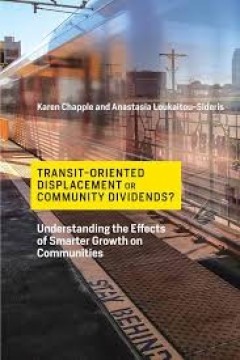
Transit-oriented displacement or community dividends? :understanding the effe…
An examination of the neighborhood transformation, gentrification, and displacement that accompany more compact development around transit. Cities and regions throughout the world are encouraging smarter growth patterns and expanding their transit systems to accommodate this growth, reduce greenhouse gas emissions, and satisfy new demands for mobility and accessibility. Yet despite a burgeoning…
- Edition
- -
- ISBN/ISSN
- 9780262352901
- Collation
- 1 online resource (368 pages).
- Series Title
- -
- Call Number
- -
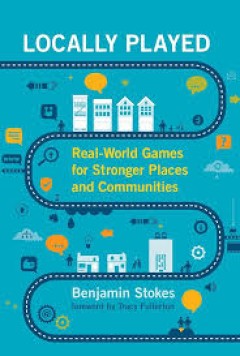
Locally played :real-world games for stronger places and communities
How games can make a real-world difference in communities when city leaders tap into the power of play for local impact. In 2016, city officials were surprised when Pok?emon GO brought millions of players out into the public space, blending digital participation with the physical. Yet for local control and empowerment, a new framework is needed to guide the power of mixed reality and pervasive …
- Edition
- -
- ISBN/ISSN
- 9780262356923
- Collation
- 1 online resource (288 pages).
- Series Title
- -
- Call Number
- -

From Embryology to Evo-Devo: A History of Developmental Evolution
Historians, philosophers, sociologists, and biologists explore the history of the idea that embryological development and evolution are linked.Although we now know that ontogeny (individual development) does not actually recapitulate phylogeny (evolutionary transformation), contrary to Ernst Haeckel's famous dictum, the relationship between embryological development and evolution remains the su…
- Edition
- -
- ISBN/ISSN
- 9780262277976
- Collation
- 1 online resource (vii, 569 pages) :illustrations.
- Series Title
- -
- Call Number
- -

The state of economics, the state of the world
Leading economists address the ongoing challenges to economics in theory and practice in a time of political and economic crises.OCLC-licensed vendor bibliographic record.
- Edition
- -
- ISBN/ISSN
- 9780262353472
- Collation
- 1 online resource (536 pages).
- Series Title
- -
- Call Number
- -
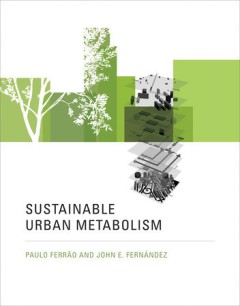
Sustainable Urban Metabolism
A unified framework for analyzing urban sustainability in terms of cities' inflows and outflows of matter and energy. Urbanization and globalization have shaped the last hundred years. These two dominant trends are mutually reinforcing: globalization links countries through the networked communications of urban hubs. The urban population now generates more than eighty percent of global GDP. Cit…
- Edition
- -
- ISBN/ISSN
- 9780262316958
- Collation
- 1 online resource (xiii, 244 pages) :illustrations
- Series Title
- -
- Call Number
- -
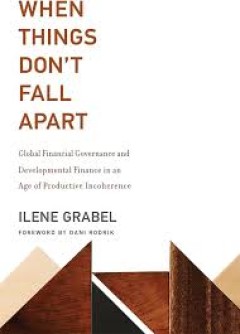
When things don't fall apart :global financial governance and developmental f…
An account of the significant though gradual, uneven, disconnected, ad hoc, and pragmatic innovations in global financial governance and developmental finance induced by the global financial crisis. In When Things Don't Fall Apart, Ilene Grabel challenges the dominant view that the global financial crisis had little effect on global financial governance and developmental finance. Most observers…
- Edition
- -
- ISBN/ISSN
- 9780262344043
- Collation
- 1 online resource (xxi, 372 pages)
- Series Title
- -
- Call Number
- -
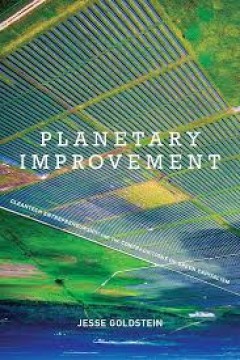
Planetary improvement :cleantech entrepreneurship and the contradictions of g…
An examination of clean technology entrepreneurship finds that ""green capitalism"" is more capitalist than green.OCLC-licensed vendor bibliographic record.
- Edition
- -
- ISBN/ISSN
- 9780262346139
- Collation
- 1 online resource
- Series Title
- -
- Call Number
- -

Treading Softly: Paths to Ecological Order
"We are living beyond our means, running up debts both economic and ecological, consuming the planet's resources at rates not remotely sustainable. But it's hard to imagine a different way. How can we live without cheap goods and easy credit? How can we consume without consuming the systems that support life? How can we live well and live within our means? In Treading Softly, Thomas Princen hel…
- Edition
- -
- ISBN/ISSN
- 9780262266079
- Collation
- 1 online resource (xi, 210 pages)
- Series Title
- -
- Call Number
- -
 Computer Science, Information & General Works
Computer Science, Information & General Works  Philosophy & Psychology
Philosophy & Psychology  Religion
Religion  Social Sciences
Social Sciences  Language
Language  Pure Science
Pure Science  Applied Sciences
Applied Sciences  Art & Recreation
Art & Recreation  Literature
Literature  History & Geography
History & Geography